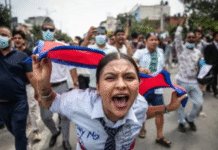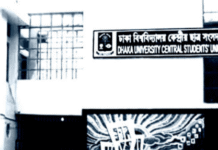Bringing money back from abroad difficult: ACC
Politicians and rights activists are of the opinion that a lion’s share of the money transferred and deposited with foreign banks by Bangladesh nationals was obtained through corruption and other illegal means.
The state mechanism is responsible for allowing the quarters in power to carry out corruption and capital flight, they said.
They expressed concern over rising capital flight from Bangladesh to banks abroad in general and Swiss banks in particular, and urged the government to bring the money back.
However, the Anti-Corrution Commission has found taking steps to bring back money from abroad very difficult.
‘We are aware of the situation but it is difficult to take any steps in this regard as Swiss Banks do not provide specific information about the account holders,’ Anti Corruption Commission chairman M Badiuzzaman told New Age.
‘Besides Swiss banks, money is laundered to different countries using different modes. That is why the ACC has been trying to collect information about money launderers through the “Mutual Legal Assistance Request” system,’ he said.
Deposits by Bangladeshi citizens to banks in Switzerland rose by 36.55 per cent in 2014 compared with the amount in 2013, according to the latest data of the Swiss National Bank released on Thursday.
The data showed that the total deposits by Bangladeshi citizens soared to 508 million Swiss franc (or Tk 4,299 crore) from 372 million franc or (Tk 3,236 crore).
The Swiss central bank, however, has not revealed how many people deposited the money. The SNB report on assets and liabilities of Swiss banks is available on its web site.
Communist Party of Bangladesh president Mujahidul Islam Selim alleged a few people had misappropriated people’s money and had kept them at different foreign banks, including Swiss banks.
The deposited money should be confiscated after being brought back to the country immediately, he said.
‘We can tell by the situation in Bangladesh that the major portion of the
deposited money was laundered from the country by a certain quarter,’ Ganasanghati Andolon chief coordinator Zonayed Saki alleged.
He alleged that the rulers in Bangladesh were actually launders as the quarters in power used the state mechanism to carry out corruption, steal and loot people’s money.
Transparency International Bangladesh executive director Iftekharuzzaman expressed concern over the rising trend of capital flight from the country and said that if the money could be kept in the country it would have led to investment and played a role in the country’s development.
The government is now deprived of tax while the money is playing a role in the foreign economy.
He said that a part of the deposited money in the foreign banks might be of NRBs, but it can be logically assumed that people involved in export-import were involved in laundering through under
invoicing and over invoicing.
The remaining part of the money is obtained through direct corruption and is sent to foreign banks through laundering, he said.
The state mechanism is responsible for allowing the quarters in power to carry out corruption and capital flight, they said.
They expressed concern over rising capital flight from Bangladesh to banks abroad in general and Swiss banks in particular, and urged the government to bring the money back.
However, the Anti-Corrution Commission has found taking steps to bring back money from abroad very difficult.
‘We are aware of the situation but it is difficult to take any steps in this regard as Swiss Banks do not provide specific information about the account holders,’ Anti Corruption Commission chairman M Badiuzzaman told New Age.
‘Besides Swiss banks, money is laundered to different countries using different modes. That is why the ACC has been trying to collect information about money launderers through the “Mutual Legal Assistance Request” system,’ he said.
Deposits by Bangladeshi citizens to banks in Switzerland rose by 36.55 per cent in 2014 compared with the amount in 2013, according to the latest data of the Swiss National Bank released on Thursday.
The data showed that the total deposits by Bangladeshi citizens soared to 508 million Swiss franc (or Tk 4,299 crore) from 372 million franc or (Tk 3,236 crore).
The Swiss central bank, however, has not revealed how many people deposited the money. The SNB report on assets and liabilities of Swiss banks is available on its web site.
Communist Party of Bangladesh president Mujahidul Islam Selim alleged a few people had misappropriated people’s money and had kept them at different foreign banks, including Swiss banks.
The deposited money should be confiscated after being brought back to the country immediately, he said.
‘We can tell by the situation in Bangladesh that the major portion of the
deposited money was laundered from the country by a certain quarter,’ Ganasanghati Andolon chief coordinator Zonayed Saki alleged.
He alleged that the rulers in Bangladesh were actually launders as the quarters in power used the state mechanism to carry out corruption, steal and loot people’s money.
Transparency International Bangladesh executive director Iftekharuzzaman expressed concern over the rising trend of capital flight from the country and said that if the money could be kept in the country it would have led to investment and played a role in the country’s development.
The government is now deprived of tax while the money is playing a role in the foreign economy.
He said that a part of the deposited money in the foreign banks might be of NRBs, but it can be logically assumed that people involved in export-import were involved in laundering through under
invoicing and over invoicing.
The remaining part of the money is obtained through direct corruption and is sent to foreign banks through laundering, he said.
Source: New Age









